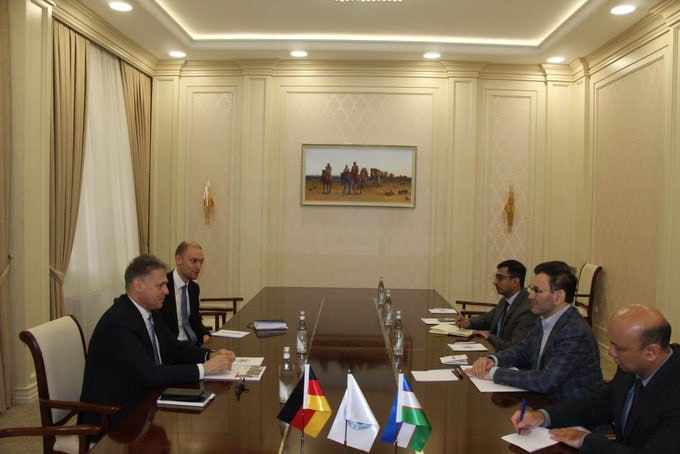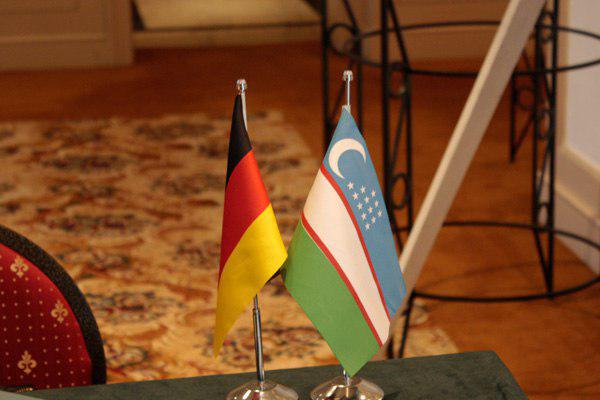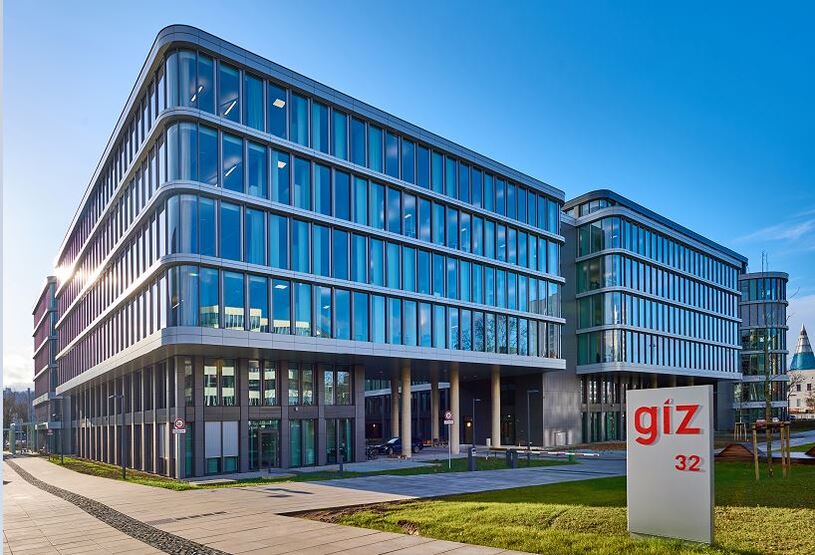The International Institute for Central Asia (IICA) is set to embark on a new collaborative journey with the German Society for International Cooperation (GIZ), marking a significant step forward in regional cooperation efforts, IICA reported.

A meeting was recently convened between IICA and the Country Director of GIZ in Kazakhstan, Uzbekistan, and Turkmenistan, Joachim Fritz, whose office is based in Tashkent. The discussions centered on identifying areas of mutual interest and exploring avenues for practical collaboration between the two institutions.
The GIZ representative underscored the significance of IICA as the sole research center in the region dedicated to conducting focused research and formulating proposals aimed at bolstering regional cooperation and fostering a unified and self-sufficient Central Asia.
Recognizing shared objectives and areas of convergence in their activities, both parties expressed a keen interest in leveraging their respective strengths to drive meaningful cooperation initiatives.

Highlighting GIZ's ongoing endeavors in Central Asia, the representative detailed the implementation of 13 projects focused on fostering a barrier-free trade environment, strengthening the rule of law, combating violent extremism, enhancing human resources, facilitating dialogue on transboundary water resources, and transitioning to a sustainable "green" economy. GIZ has been instrumental in supporting the training and professional development of human resources across the region through specialized courses and training programs.
Of particular importance is GIZ's assistance in the development and presentation of the Regional Strategy on Adaptation to Climate Change in Central Asia at the UN Climate Conference in Dubai.
Both parties affirmed their commitment to maintaining regular communication and organizing joint events aimed at enhancing regional dialogue on pressing issues of mutual concern.

GIZ in Uzbekistan
The German Society for International Cooperation (GIZ) GmbH has been operating in Uzbekistan since 1992, establishing a country office in the capital, Tashkent, as well as additional operations in Nukus, Karakalpakstan, and Termez, South Uzbekistan. Following its independence in 1991, Uzbekistan faced the challenge of transitioning its centrally planned economy to a vastly different economic landscape. Trade routes and production chains collapsed, and newly established national borders disrupted transport and trade.
Despite investing in state-of-the-art healthcare technology to modernize its healthcare system, Uzbekistan encountered difficulties due to a lack of qualified personnel to fully utilize the advanced medical equipment. In 2019, Uzbekistan introduced legislation on administrative procedures to enhance the economic and investment climate. However, issues such as corruption, inconsistent application of laws, and a shortage of legal experts within state authorities hindered the implementation process. As a young independent nation, Uzbekistan grapples with numerous social, legal, and economic challenges.

GIZ operates in Uzbekistan under the auspices of the German Federal Ministry for Economic Cooperation and Development (BMZ), the German Federal Foreign Office (AA), and the German Federal Ministry for the Environment, Nature Conservation, and Nuclear Safety (BMU). The key areas of cooperation between Uzbekistan and Germany include sustainable economic development, healthcare, and good governance.
GIZ's efforts are directed towards fostering inclusive economic growth by supporting the private sector and expanding agriculture-related industries such as fertilizers, agricultural machinery, and grain trade. The aim is to generate new employment opportunities and income streams, particularly in regions with underdeveloped infrastructure. Additionally, GIZ places emphasis on promoting tourism and supporting reform initiatives through vocational education programs, rule of law promotion, and advanced management training.
Follow Daryo's official Instagram and Twitter pages to keep current on world news.
Comments (0)